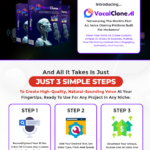Remember those early days of the internet, when clunky banner ads promised you’d be a millionaire in a week? Well, affiliate marketing is the internet’s much cooler, older sibling. It’s a way to earn commissions by promoting other companies’ products. Think of it as being a digital salesperson, except you get to ditch the polyester suit and avoid awkward watercooler conversations.
Here’s the thing: there’s no magic bullet in affiliate marketing. It’s not a one-size-fits-all situation. You can’t just slap a random link on your website and expect a Ferrari to appear in your driveway (although that would be pretty cool). The key is finding the right approach for your niche and target audience. So, buckle up, and let’s explore the exciting world of affiliate marketing methods!
My Proven Way to Make $100-$200 Per Day With 0 Investment – Watch THIS FREE Video to START >>

1. Content Marketing: Your Ticket to Trustworthy Authority (and More Sales)
Content marketing is the ultimate slow cooker of affiliate marketing. It takes time, effort, and the right ingredients, but the payoff can be delicious (and by delicious, we mean fat stacks of cash).** Here’s the recipe:**
- Building Trust: People buy from people they trust. Content marketing allows you to showcase your expertise and passion for your niche. Informative blog posts, in-depth reviews, and helpful tutorials establish you as a reliable source. Imagine you’re a fitness enthusiast raving about a new protein powder. By creating a detailed review highlighting its benefits and potential drawbacks, you’re not just pushing a product – you’re offering valuable insights that build trust with your audience.
- Content Variety is the Spice of Life: Don’t bore your readers with a monotonous blog. Mix things up with different formats! Reviews dissect products, tutorials tackle specific problems, and infographics offer bite-sized chunks of information in a visually appealing way. Think of it like having a well-stocked pantry – you can whip up a satisfying meal (or blog post) no matter what your audience craves.
- SEO: The Secret Ingredient: Search Engine Optimization (SEO) is like sprinkling magic search dust on your content. By strategically incorporating relevant keywords, you increase the chances of your content appearing at the top of search engine results. This translates to organic traffic – people actively looking for information you can provide, including product recommendations.
- Spreading the Word: Once your content masterpiece is cooked, don’t leave it languishing in the back of the digital fridge. Promote it on social media platforms relevant to your niche. Share it with your email list (if you haven’t built one yet, get started!). The more people see your content, the more likely they are to discover your awesome product recommendations and, well, buy stuff.
Content marketing isn’t a get-rich-quick scheme, but it’s a powerful tool for building trust, establishing authority, and attracting a loyal audience – all essential ingredients for affiliate marketing success.
2. Paid Advertising (PPC): Fast-Track to Affiliate Traffic (But Watch the Speedometer)
Content marketing simmers like a slow cooker, building trust and authority over time. PPC (Pay-Per-Click) advertising, however, is a high-octane injection for your affiliate marketing strategy. It propels targeted traffic towards your affiliate links, reaching people actively seeking products or services in your niche.
Here’s how PPC fuels your affiliate engine:
- Laser-Focused Targeting: Imagine you’re promoting ergonomic office chairs. With PPC, you can craft ads displayed on search engines like Google Ads or social media platforms like Facebook Ads. These platforms allow you to target people searching for “comfortable office chairs” or following accounts dedicated to workplace wellness. This ensures your affiliate links land in front of a highly relevant audience, increasing the chances of clicks and conversions (sales) – commission city, baby!
- PPC Powerhouses: Google Ads is a digital Times Square, letting you display targeted ads based on users’ search queries. Social media advertising platforms like Facebook Ads and Instagram Ads take things a step further. They allow you to get super specific with your targeting, zeroing in on demographics, interests, and even online behaviors. It’s like having a secret handshake with your ideal customer – you can instantly recognize them in the vast online crowd.
- Speed Demon: Unlike content marketing, which takes time to build traction, PPC delivers results fast. You can launch a campaign today and potentially see clicks (and hopefully, sales) tomorrow. Need a quick burst to promote a limited-time offer or a hot new gadget? PPC is your champion. It’s perfect for capitalizing on trends and seasonal spikes in demand.
- Control at Your Fingertips: PPC campaigns empower you to be the boss. You set your budget, target audience, and even the specific keywords that trigger your ads. Feeling the need to fine-tune your strategy on the fly? No problem. PPC offers exceptional control and flexibility to optimize your campaigns for maximum return on investment (ROI).
The Reality Check: PPC isn’t a magic money machine. You pay each time someone clicks your ad. This can be a fantastic strategy if your ROI is positive (meaning you earn more in commissions than you spend on clicks). However, it’s crucial to meticulously monitor your campaign performance and adjust your strategy if the cost outweighs the benefits. PPC success requires some know-how and experimentation, but it can be a powerful tool to jumpstart your affiliate marketing efforts and put your foot on the gas pedal to affiliate success.
My Proven Way to Make $100-$200 Per Day With 0 Investment – Watch THIS FREE Video to START >>
3. Social Media Marketing: The Affiliate Party Where Everyone’s Invited (and Potentially Spends Money)
Social media isn’t just about cat videos and funny memes (although, those have their place). It’s a buzzing hive of potential customers waiting to discover your awesome affiliate products. Here’s how to leverage social media’s power for affiliate marketing success:
- The Likeability Factor: Social media is all about building relationships. It allows you to showcase your brand personality, share valuable content, and interact with your audience on a more personal level. People are more likely to buy from brands they connect with, so ditch the stuffy corporate voice and inject some humor, passion, or whatever makes your brand unique. Think of it as the cool party host everyone wants to hang out with.
- Organic vs. Paid Power: There are two main ways to rock social media for affiliate marketing: organically and with paid promotion. Organic promotion involves creating engaging content like product reviews, tutorials, or behind-the-scenes glimpses. The more valuable and entertaining your content is, the more likely people are to share it, increasing your reach and brand awareness. Paid promotion allows you to target your ideal audience with laser precision, boosting the visibility of specific posts or affiliate links. It’s like paying for a fancy party flyer to ensure the right people show up.
- Building Your Fan Club: Social media isn’t a one-way street. It’s about fostering a community. Respond to comments, answer questions, and participate in discussions. This two-way communication builds trust and loyalty with your audience. Imagine having a group of enthusiastic fans raving about your product recommendations – that’s the power of a social media community in action!
- Real-World Inspiration: Let’s get real. Here are some social media affiliate marketing success stories:
- Fashionable Foodie: An influencer combines fashion tips with food recommendations, showcasing outfits perfect for a fancy brunch date and linking to affiliate programs for the trendy clothes and restaurants featured.
- Tech Guru: A tech reviewer uses engaging YouTube videos to showcase new gadgets and software, providing honest reviews and including affiliate links in the video description for viewers who want to purchase the products.
- Fitness Fanatic: A social media fitness personality shares workout routines, healthy recipes, and uses sponsored posts to promote fitness apparel or protein powder with affiliate links.
Social media marketing allows you to build relationships, promote your brand, and drive traffic to your affiliate links. So, put on your party hat, grab your phone, and get ready to mingle your way to affiliate marketing wins!
4. Email Marketing: Your Private Line to Affiliate Sales Success
Social media is a fantastic party, but sometimes you need a more personal touch with your potential customers. That’s where email marketing shines. It allows you to connect directly with a dedicated audience who’s already interested in what you have to offer, making it a goldmine for affiliate marketing.
Here’s how to leverage email marketing for affiliate glory:
- A Private Conversation: Unlike shouting your message across a crowded social media platform, email marketing allows for personalized communication. You can segment your email list based on interests, demographics, or purchase history, tailoring your message to resonate with each subscriber. Think of it like having a one-on-one chat with a friend, recommending products you genuinely believe they’ll love.
- Building Your Email Army: The foundation of email marketing is your email list. But how do you convince people to hand over their precious inbox real estate? Here’s where opt-in forms and lead magnets come into play. Opt-in forms are like polite invitations to join your email party. Offer valuable incentives like free ebooks, cheat sheets, or exclusive discounts in exchange for a subscriber’s email address. Lead magnets provide value upfront, building trust and encouraging people to sign up for your email list.
- Crafting Captivating Campaigns: Your emails shouldn’t be dry sales pitches. They should be informative, engaging, and nurture your leads towards a sale. Share valuable content like industry news, product recommendations (with affiliate links, of course!), and early access to special offers. The goal is to build relationships and establish yourself as a trusted advisor, making your product recommendations all the more persuasive.
- Segmentation Savvy and A/B Testing: Not all subscribers are created equal. Segmenting your email list allows you to send targeted campaigns that resonate with specific groups. For example, you might send an email about hiking gear to subscribers interested in outdoor activities. A/B testing allows you to experiment with different subject lines, email formats, and even sending times to see what resonates best with your audience. Think of it as fine-tuning your message to get the most clicks and conversions.
Email marketing allows you to build relationships, provide value, and promote your affiliate products in a personalized way. So, ditch the megaphone and craft engaging email campaigns that turn your email list into a loyal army of affiliate-sale contributors.
My Proven Way to Make $100-$200 Per Day With 0 Investment – Watch THIS FREE Video to START >>
5. Influencer Marketing: Borrowing Buzz from Bigwigs (But Do It Right)
Remember those high school cool kids who everyone wanted to be friends with? Influencer marketing is like befriending the cool kids of the internet – but for affiliate marketing purposes. Influencers have built a loyal audience within your niche, and by collaborating with them, you can tap into their reach and credibility to promote your affiliate products.
Here’s how to navigate the world of influencer marketing without getting detention (from the FTC, that is):
- Leveraging the Legion: Influencers have already done the hard work of building a dedicated audience. Partnering with a relevant influencer allows you to piggyback on their existing fanbase, reaching a pool of potential customers who already trust their recommendations. Think of it as the cool kid showing off your awesome new lunchbox (which happens to have your affiliate link conveniently placed on it) to their entire school.
- Finding Your Niche Niche: Not all influencers are created equal. The key is to find influencers who resonate with your specific niche and target audience. Scour social media platforms, blogs, and YouTube channels to identify influencers who align with your brand and products. Look for engagement metrics – a high number of comments and shares indicates a loyal following. Don’t be afraid to reach out to micro-influencers (those with a smaller but highly engaged audience) – they can sometimes be more effective than mega-influencers when it comes to building trust and driving conversions.
- Campaign Chameleon: There’s no one-size-fits-all approach to influencer marketing campaigns. You can collaborate with influencers on product reviews, where they showcase and provide honest feedback about your product. Sponsored content allows influencers to creatively integrate your product into their existing content, like a fitness influencer raving about your new protein powder in their workout video. Think of it as tailoring your message to fit the influencer’s style and audience – a product review might be a documentary-style video, while sponsored content could be a funny skit.
- Legalese Lite: The FTC (Federal Trade Commission) has a thing or two to say about influencer marketing and disclosure. It’s crucial to ensure all influencer partnerships are transparent. Influencers must clearly disclose sponsored content or affiliate links. Don’t get caught on the wrong side of the FTC – it can lead to hefty fines and damage your reputation. So, familiarize yourself with the FTC guidelines and make sure your influencer partnerships are squeaky clean.
Influencer marketing allows you to leverage the power of established voices within your niche. By collaborating strategically and adhering to FTC regulations, you can tap into a loyal audience and turn influencer buzz into affiliate bucks.
Picking Your Affiliate Marketing Weapon: A Guide to Owning Your Niche
Alright, you’ve surveyed the affiliate marketing battlefield – content marketing’s slow and steady simmer, PPC’s high-octane speed, the social media party atmosphere, email’s personalized conversations, and influencer marketing’s borrowed cool-kid clout. Now comes the crucial question: which weapon to wield?
Fear not, fearless affiliate marketer! Here’s a battle plan to help you choose the right method(s) for affiliate marketing domination:
The Affiliate Arsenal Recap:
- Content Marketing: Build trust and establish yourself as an authority by creating informative blog posts, reviews, tutorials, and infographics. Excellent for long-term brand building and organic traffic generation.
- PPC (Pay-Per-Click) Advertising: Target laser-focused ads to people actively searching for your niche products or services. Great for fast results and campaign control, but requires budget considerations and ROI monitoring.
- Social Media Marketing: Build a community, interact with your audience, and promote your affiliate products through organic and paid social media strategies. Ideal for brand awareness, engagement, and reaching a targeted audience.
- Email Marketing: Craft personalized email campaigns that nurture leads and promote affiliate products to a dedicated audience who’s already interested in your content. Excellent for building relationships and driving targeted sales.
- Influencer Marketing: Collaborate with influencers who have an established audience within your niche to leverage their reach and credibility. Effective for tapping into a loyal audience who trusts the influencer’s recommendations.
Choosing Your Champion:
The “best” affiliate marketing method depends on several factors:
- Know Your Niche: What industry are you passionate about? What products or services are you knowledgeable about? Tailor your method to fit your niche and its audience.
- Target Audience Intel: Who are you trying to reach? Understanding their online habits and preferred content consumption methods is key. Are they visual learners who love infographics, or do they crave in-depth blog posts?
- Budgeting for Battle: Be honest about your financial resources. PPC can be a budget burner, while content marketing requires an investment in time and content creation.
- Sharpening Your Skills: What are you good at? Do you enjoy writing informative content, or are you a social media whiz? Choose methods that align with your existing skillset and areas you’re willing to learn.
Combining Forces: Don’t be afraid to be a multi-weapon wielding affiliate marketing ninja! For a well-rounded strategy, consider combining different methods. You can leverage content marketing to build trust, then use social media to promote your content and drive traffic to your affiliate links. Influencer marketing can amplify your reach, while email marketing nurtures leads generated through other channels.
Remember, the key to affiliate marketing success lies in experimentation, adaptation, and continuous improvement. Track your results, analyze what works and what doesn’t, and refine your strategy as you go. With the right weapon (or a well-chosen arsenal) in hand, you’ll be well on your way to conquering the affiliate marketing battlefield!
My Proven Way to Make $100-$200 Per Day With 0 Investment – Watch THIS FREE Video to START >>
Conclusion:
So, there you have it, affiliate marketing adventurers! You’ve explored the content marketing jungle, navigated the high-speed chase of PPC, mingled at the social media party, cozied up with email marketing, and borrowed clout from influencer marketing. Remember, there’s no single holy grail – the best method depends on your niche, audience, budget, and skillset. Don’t be afraid to experiment, combine methods, and adapt your strategy as you go. With the right tools and a dash of affiliate marketing know-how, you’re well on your way to turning your passion into profits!









